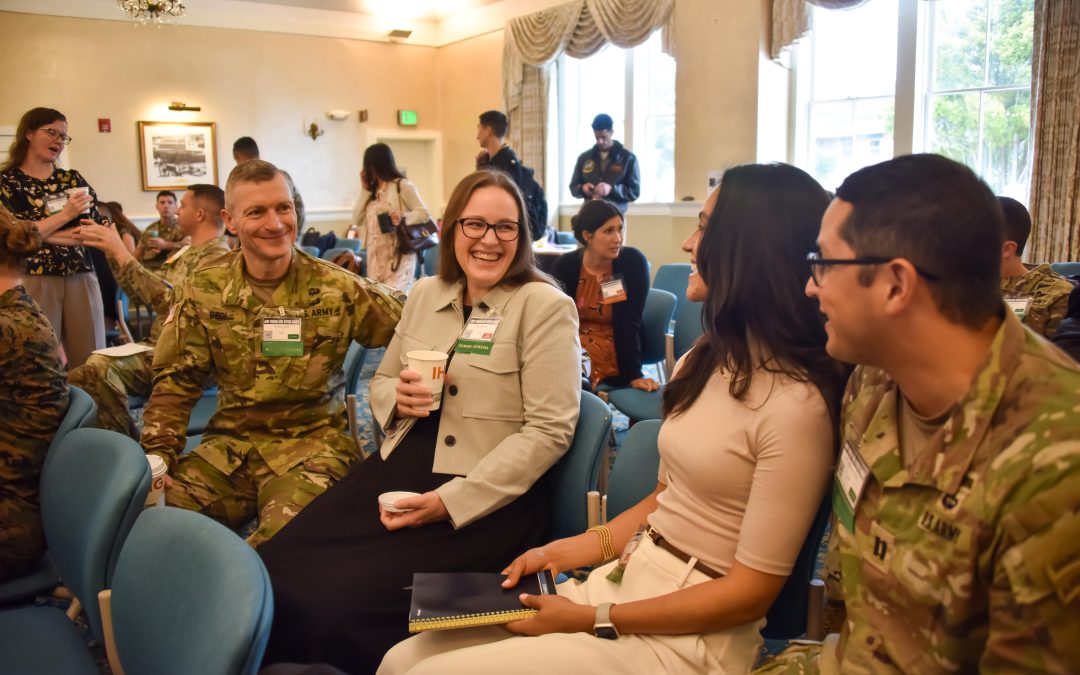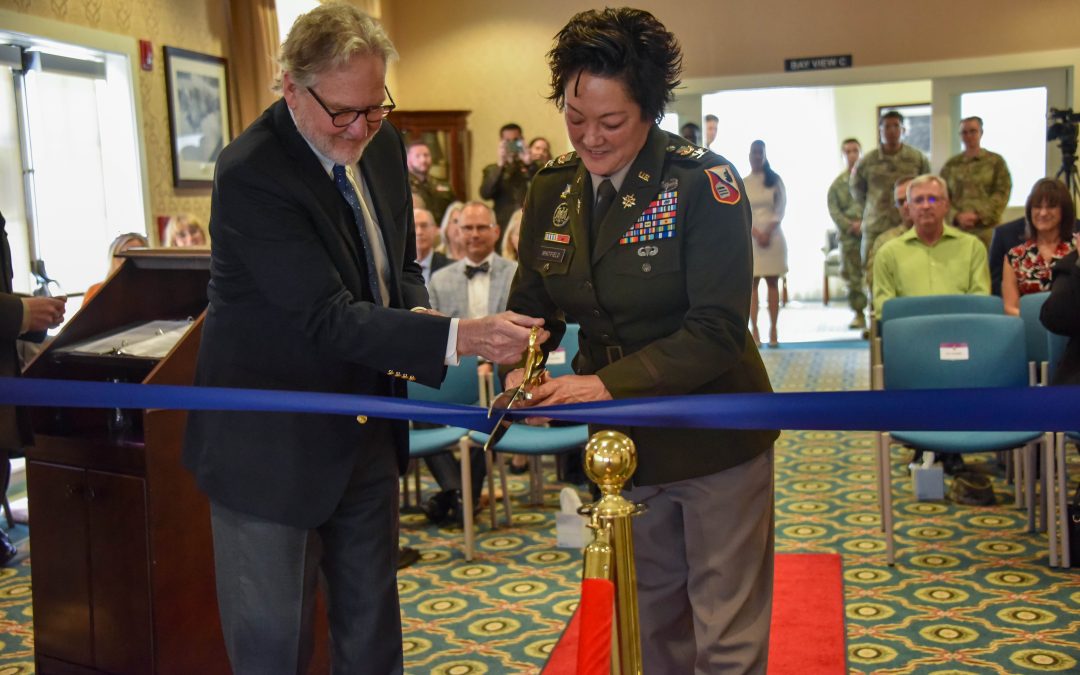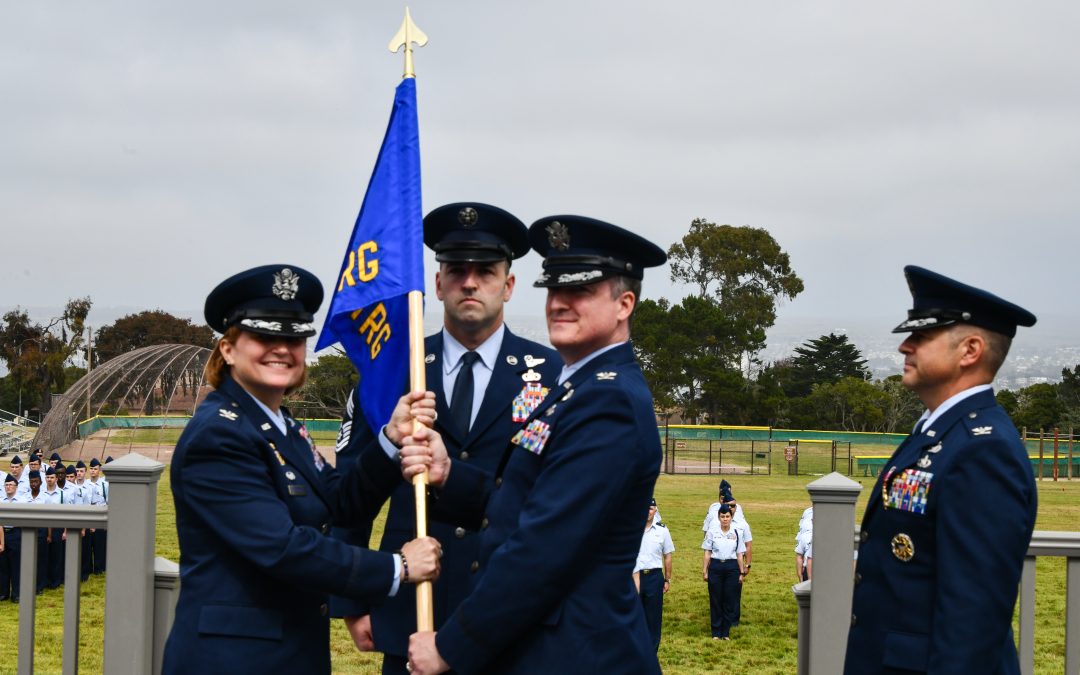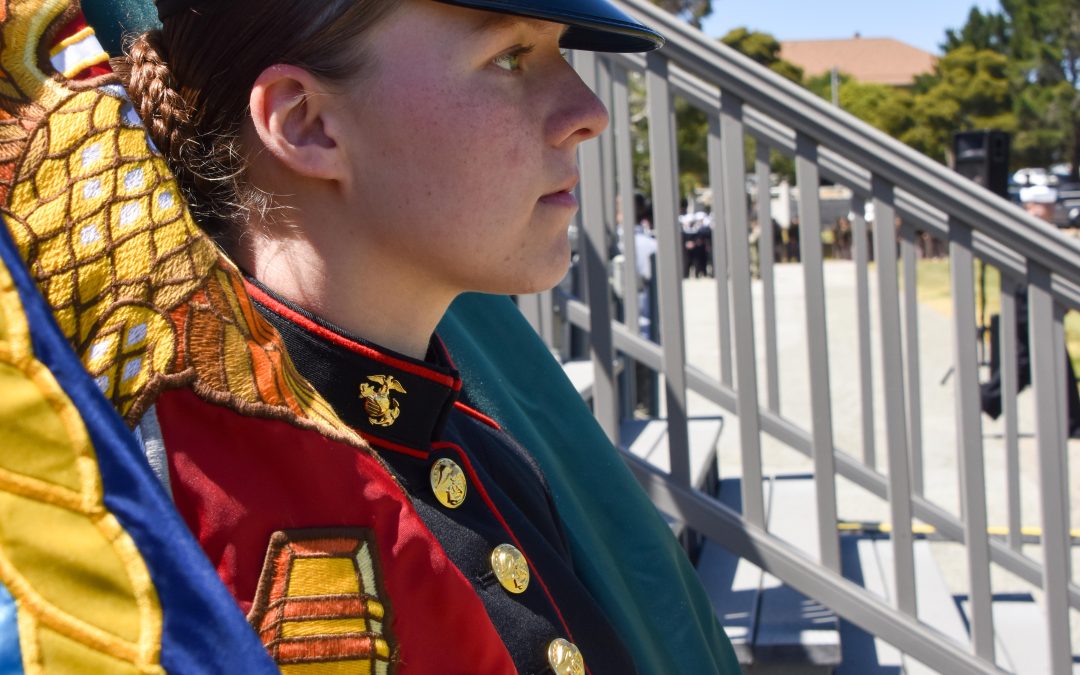By Natela Cutter
DLIFLC Public Affairs
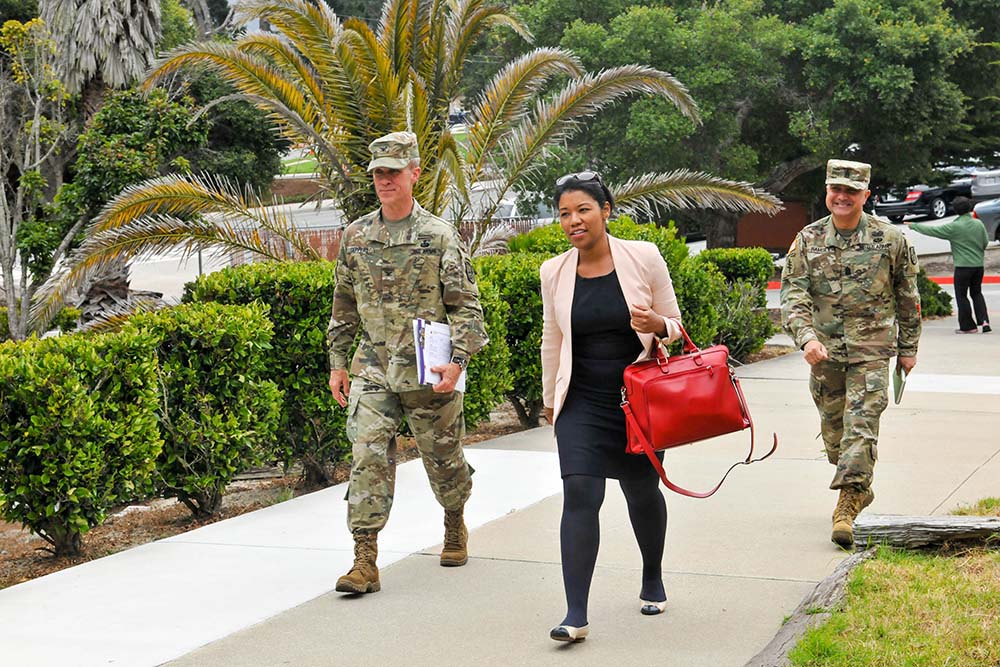
Ms. Diana Banks was escorted to the Korean language school on the Presidio of Monterey by DLIFLC Commandant Col. Phil Deppert. (photo by Natela Cutter)
MONTEREY, Calif. – Ms. Diana Banks, assigned as the deputy assistant secretary of defense for force training and education, Office of the Under Secretary of Defense (Personnel and Readiness), in Washington, D.C., visited the Defense Language Institute Foreign Language Center July 25.
Banks, new to the job since July 6, wanted to get to learn more about the institute’s mission as it constitutes a part of her portfolio. During her several hour visit to the Presidio, Banks observed a Korean and Arabic Iraqi dialect language class.
“The classroom was amazing,” said Banks referring to the Korean language students. “The level of instruction is top notch and students are motivated. They clearly see the connection between what they are doing and the national security mission at large, which is great.”
Banks explained that her office, a relatively new part of the USD P&R, is charged with making sure that there is a ready force and that the services are putting a joint effort into education and training in order to defend the nation in the future.
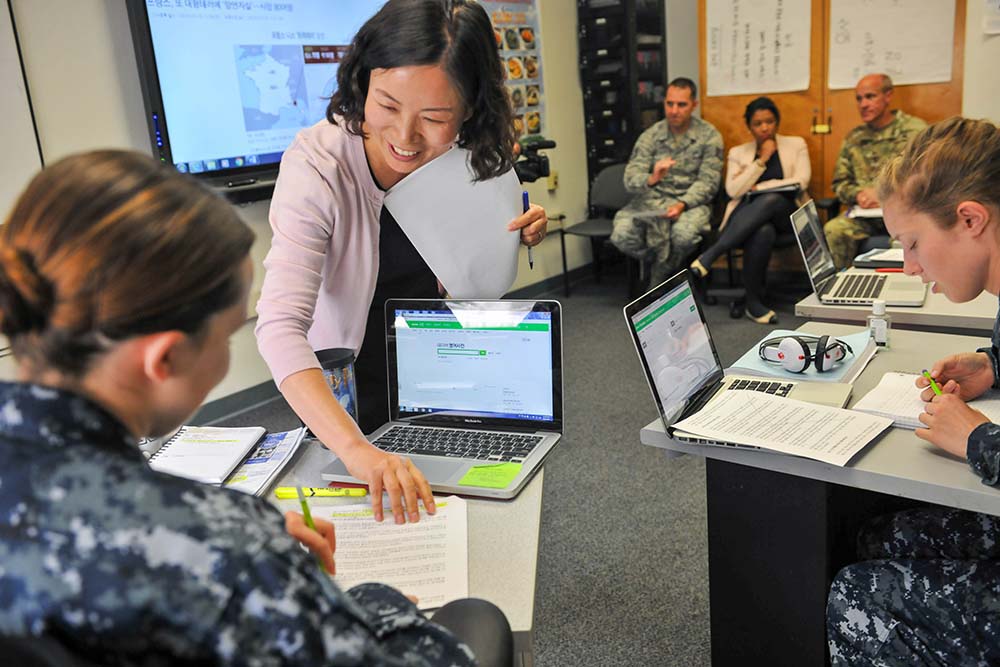
The Korean instructor eagerly helps her student while visitors look on during the visit to the Korean school Monday. (photo by Natela Cutter)
“The Force Education and Training directorate was specifically put together with some of the readiness pieces that affect individual service members directly, such as education training, final readiness, etc. Putting those all together under one directorate (was the goal) so we could get some synergies out of policy coordination,” Banks said.
Banks recognizes the necessity for learning foreign language and culture within the ranks of the military and the Department of Defense, stating that it reflects the very diversity of our nation’s composition.
“The need for people to really understand the world around us (is important) so that we can better shape the environment we are working in. I think that is what language and culture really drives at the heart of it,” she said.
Banks, a Stanford and Harvard University graduate, said there is recognition within the government that long-term investment in foreign language and culture education “pays off dividends in the future.”
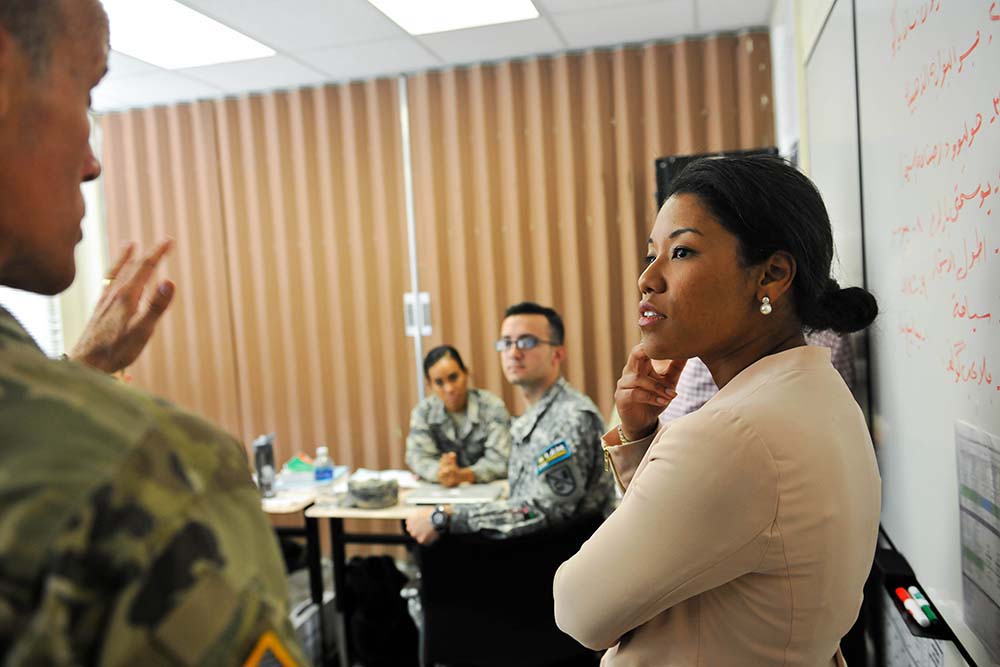
Ms. Banks listens to DLIFLC Commandant Col. Phil Deppert explain the intricacies of learning Modern Standard Arabic and the Iraqi dialect simultaneously. Though the task is daunting, DLIFLC students are able to rise to the challenge and pass the very challenging Defense Language Proficiency Test. These students will take their exam in just four weeks. (Photo by Natela Cutter)
“It is a little bit of money, when you look at the defense budget overall (and) it’s not that much money, but it really buys us a capability that can’t be matched,” Banks concluded.
DLIFLC is DOD’s premier school for foreign language education and training, with classroom instruction, mobile training teams, and on-line materials tailored for students at all levels of required proficiency or performance. The institute trains some 3,500 students annually in 23 languages and is attended by all four branches of the military service and select individuals sponsored by their agencies.

